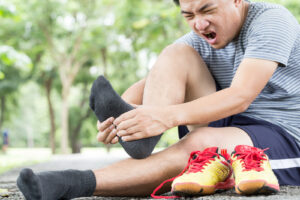Dry, cracked heels can be embarrassing for some people and can often cause pain while walking. We often see people in the clinic this time of the year wanting solutions before going away or coming back from their overseas Summer holiday. There are a number of factors that cause dry, cracked heels and there are so many ways we can help get your feet feeling and looking great!
What happens to the heels?
- Anhidrosis – the skin around the heels becomes dry
- Callus – thick or hardened skin around the heels builds up
- Fissures – cracks appear around the heels (ouch!)
What causes dry, cracked heels?
Lifestyle factors:
- Walking around the house or outside in bare feet
- Wearing thongs or open back shoes
- Standing on hard surfaces for a long period of time (eg: concrete)
- Increased BMI (body weight) adds more pressure onto the heels
- Shoes that don’t fit properly
Medical factors:
- Diabetes
- Kidney disease
- Hormone imbalances (eg: thyroid or estrogen)
- Skin conditions (eg: psoriasis or eczema)
- Vitamin, minerals, zinc deficiencies and/or malnutrition
What can you do?
- Moisturise the heels twice daily using an emollient available at our clinic
- Use a pumice stone or emery board to reduce the thick, dry skin
- Avoid walking around the house or outside in bare feet
How can we help?
At the Diamond Valley Foot & Ankle clinic we use specialised podiatry equipment to remove any dry, thick and/or cracked skin around the heels (pain-free!). We also have emollients that help to moisturise, soften and smooth the skin.
Sound familiar? Don’t let your dry, cracked heels ruin your Summer holiday! For individual advice regarding your feet, feel free to contact us or book an appointment online.
